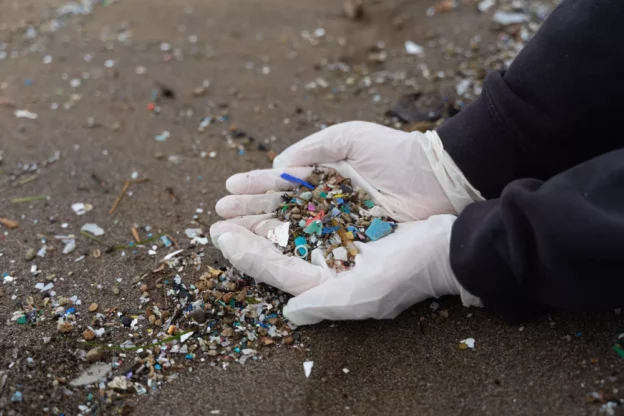A team of researchers from the University of Kentuckyhas developed an ecologicaland environmentally sustainable magnet to combat the presence of microplastics in the oceans. This breakthrough, published in the journal Scientific Reports, is based on an innovative solution: the use of natural deep eutectic solvents (NADES) for the capture and removal of these tiny particles in water.
NADES – environmentally friendly solvents for effective cleaning
NADES are a class of environmentally friendly and biodegradable solvents that are highly attractive to microplastics. The design of the magnet takes advantage of this property to trap and concentrate the particles in a specific area, facilitating their subsequent removal and elimination from the marine environment.
The present technological proposal is emerging as a viable and promising alternative to address the pressing problem of microplastic pollution in the oceans. At the same time, this innovative method minimizes the environmental impact generated by traditional cleaning techniques, which constitutes a significant advance in the search for sustainable solutions.
Challenges of microplastics elimination
Dr. Jian Shi, a professor in the Department of Biosystems and Agricultural Engineering at the University of Kentucky, explains that these tiny particles, often imperceptible to the naked eye, are the product of the fragmentation of larger plastic waste. Prolonged exposure to sunlight and physical stress causes the decomposition of these materials, leading to the formation of microplastics that contaminate the marine ecosystem.
The main difficulty in eliminating microplastics lies in their small size. This characteristic makes them highly resistant to conventional methods such as centrifugation or filtration, which are ineffective or too costly for large-scale application.
Plastic: an important material that has become an environmental threat
Plastic, due to its strength and affordability, has become ubiquitous in everyday life. However, this same strength becomes an environmental problem, since its slow decomposition generates a considerable amount of waste that persists in the environment for long periods of time.
Over time, plastics break down into smaller and smaller particles, called nanoplastics. These particles, of tiny dimensions and invisible to the human eye, can only be detected by microscopy. Their ingestion by marine life and their subsequent incorporation into the human food chain represent a significant threat to ecosystem and human health.
NADES: an environmentally friendly and efficient cleaning magnet
Professor Czarena Crofcheck, co-author of the study, describes NADES as a “magnet specifically designed to attract and hold these tiny pieces of plastic. In essence, when mixed with water, NADES binds to plastics and pulls them out of their location, enabling their subsequent disposal.”
NADES are distinguished by their efficiency and environmental friendliness, as their composition is based on materials of natural origin. This fundamental characteristic allows them to clean up pollutants without generating new substances that are harmful to the ecosystem.
Moving towards sustainable solutions
The researchers note that these solvents, from natural sources such as plants and coconuts, undergo a change from a solid to a liquid state when mixed. This transformation creates a highly efficient means of extracting the tiny plastic particles from the water.
The present research proposes an innovative and efficient method for the decontamination of waters affected by micro and nanoplastics. This method not only stands out for its cleaning efficiency, but also presents a viable way to recycle these plastic materials, which represents a significant advance in the search for sustainable solutions.
Don’t miss any of our posts and follow us on social media!
Inspenet.com YouTube LinkedIn Facebook Instagram
Source: prensa-latina.cu

